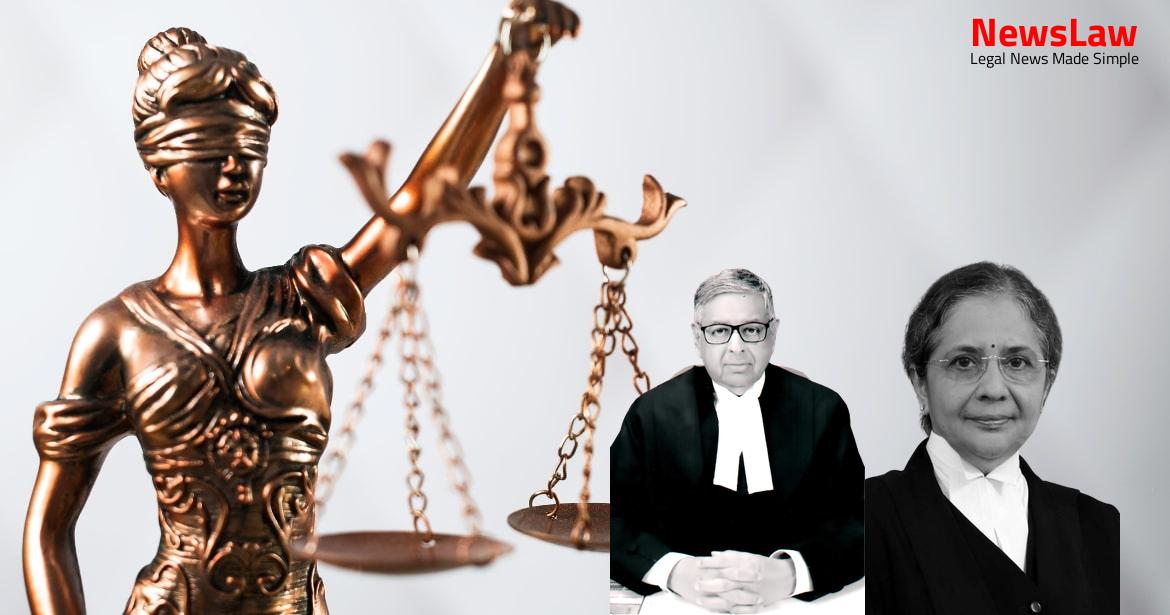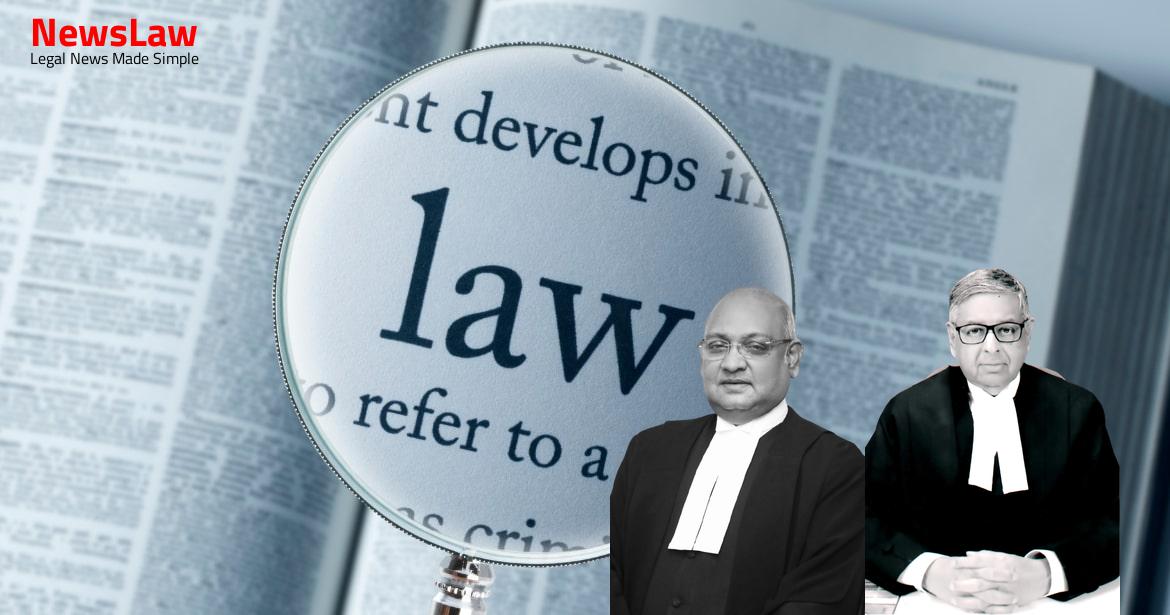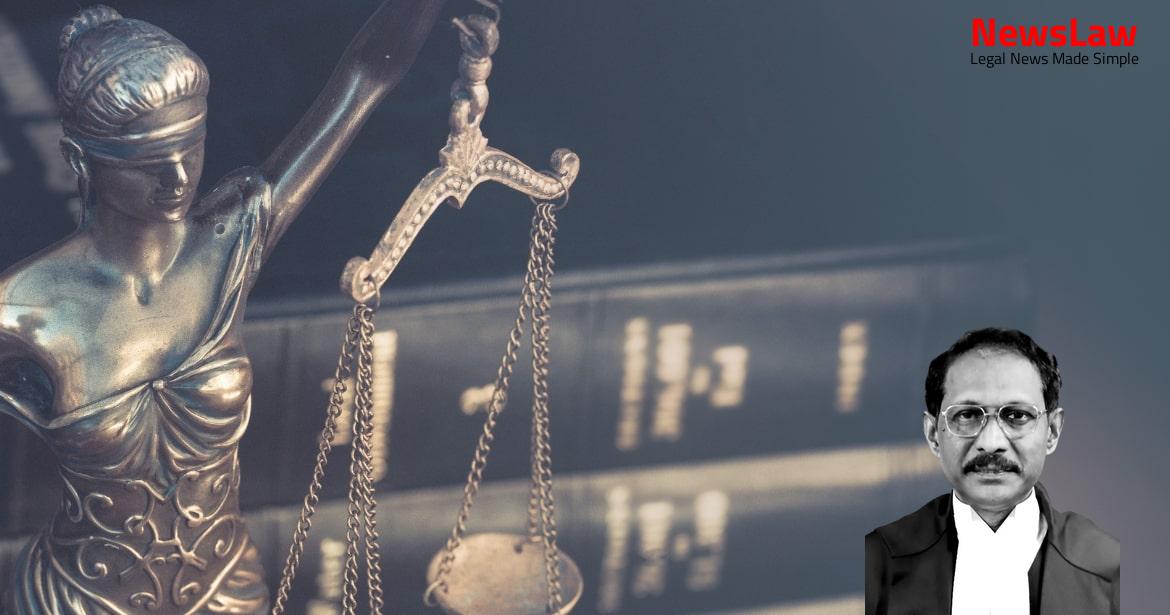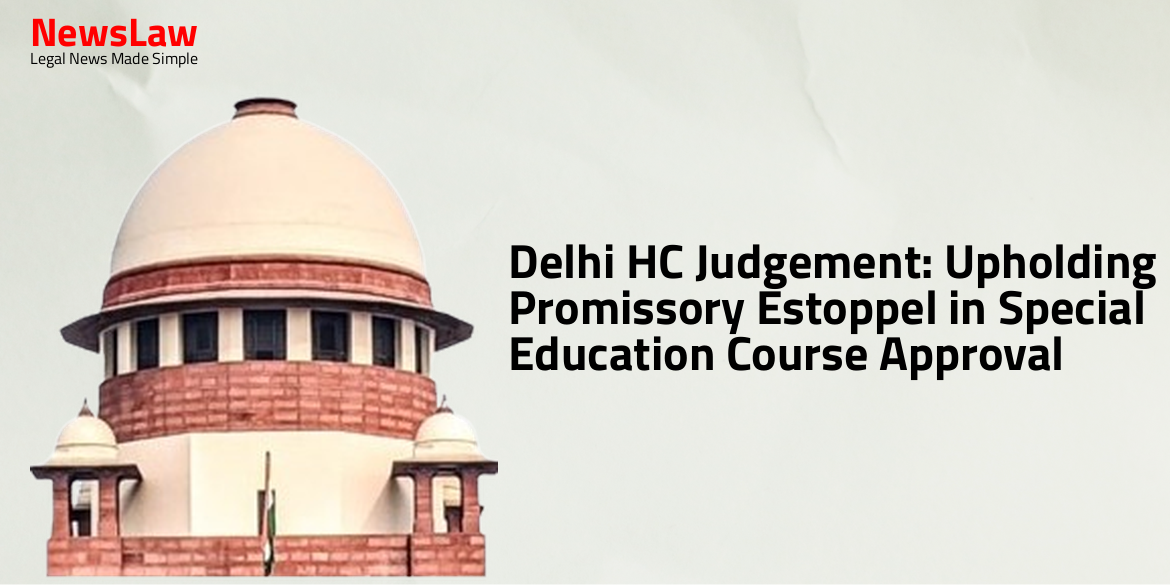In the legal case of Sonai Election Dispute, the Appellant (Karim Uddin Barbhuiya) and Respondent(Aminul Haque Laskar) were embroiled in a contentious battle over the election results. The Respondent filed an Election Petition raising objections to the election of the Appellant. However, the High Court recently dismissed the Petition, leading to significant developments in the case. Explore the nuances of this case and the impact of the court’s decision.
Facts
- Appellant filed nomination papers as a candidate of AIUDF on 11.03.2021.
- Respondent filed Election Petition on 04.06.2021 under RP Act questioning the election of the appellant.
- High Court issued notice in the Election Petition on 24.06.2021.
- Election for Legislative Assembly Constituency no. 10, Sonai concluded on 01.04.2021 with appellant securing 71,937 votes.
- Appellant filed an Appeal against the High Court’s order dated 26.04.2023 which dismissed IA seeking rejection of the Election Petition.
- Last date for scrutiny of nomination papers was 15.03.2021.
- Appellant filed an application for rejection of the Election Petition on 23.08.2021.
- The High Court dismissed the I.A. filed by the appellant on 26.04.2023.
- The judgment passed on this date is being challenged by the appellant.
- The specific reasons for the dismissal of the I.A. need to be examined closely.
- The appellant may have grounds to appeal the decision.
Also Read: Case Summary: Discharge of Offence under IPC Sections 420 and 120B
Arguments
- ARGUMENTS BY PETITIONER: The Petitioner argued that the election of the Appellant should be set aside due to improper acceptance of nomination papers containing false statements.
- The Petitioner also alleged corrupt practices by the Appellant for failing to make required disclosures.
- CITATION OF JUDICIAL PRECEDENTS: The Petitioner cited various judicial precedents to support their arguments on the election petition.
- CLAIMS OF FALSE INFORMATION: The Petitioner claimed false statements by the Appellant regarding educational qualifications and loan details in the nomination papers and Form-26 affidavit.
- DEFENSE BY APPELLANT’S COUNSEL: The Appellant’s counsel vehemently opposed the allegations as baseless and speculative.
- SCRUTINY OBJECTION: The Appellant’s counsel mentioned that no written objections were raised during the scrutiny of nomination papers, thus denying improper acceptance claim.
- REJECTION OF APPLICATION: The High Court rejected the Appellant’s application under Order VII Rule 11, CPC, for dismissal of the Election Petition.
- CHALLENGE TO EDUCATIONAL QUALIFICATION CLAIM: The Petitioner contended that the Appellant falsely claimed a Bachelor of Arts degree in the nomination papers and affidavit.
- EVIDENCE SCRUTINY: Emphasis was placed on requiring clear, cogent, and credible evidence supporting the claims made in the Election Petition.
- Respondent alleged that the appellant deliberately did not mention liabilities as a partner of M/s. Allied Concern regarding provident fund contributions.
- Respondent raised objection about appellant’s educational qualifications not matching the nomination paper during scrutiny.
- Another candidate also raised objection about appellant’s qualifications to the returning officer, who did not take action under Section 36 of the RP Act.
- Improper acceptance of the nomination paper claimed by the respondent due to alleged misleading information provided by the appellant.
- Allegations of misrepresentation in educational qualifications, suppression of liabilities, and non-disclosure of defaults in provident fund contributions considered as corrupt practice by the respondent.
- Appellant filed an application seeking rejection of the Election petition under Order VII Rule 11 of CPC read with Section 87 of the RP Act.
- Respondent filed the Election Petition under Section 100 seeking a declaration that the appellant’s election was void.
Also Read: Bail Grant in NIA. vs. Shoma Kanti Sen Case
Analysis
- Section 83(1)(b) of the RP Act mandates providing full particulars of any alleged corrupt practice in an Election Petition.
- The allegations of corrupt practice must be precise, specific, and unambiguous, whether it is bribery, undue influence, or any other corrupt practice as defined in Section 123 of the Act.
- The standard of proof required for establishing a charge of corrupt practice is the same as that for a criminal charge.
- Section 100 of the Act outlines the grounds for declaring an election void, including disqualification of a candidate, corrupt practices, improper rejection of a nomination, etc.
- If a corrupt practice is proven but was committed without the candidate’s consent and preventive measures were taken, the election may not be declared void.
- Section 123 of the Act includes undue influence as a corrupt practice, with specific provisions and exceptions listed.
- Various sections and rules of the RP Act, such as 33A, 36, 80, 81, 82, and 87, outline the necessary steps for questioning an election, presenting an Election Petition, and following the proper procedure before the High Court.
- The Election Petition lacks concise statement of material facts as required by Section 83(1)(a) of the RP Act.
- Allegations of false statements and misrepresentations made against the Appellant do not fall under the definition of ‘Corrupt practice’ of ‘undue influence’ as per Section 123(2) of the RP Act.
- The Election Petition also lacks ‘full particulars’ of the alleged Corrupt practice as required in Section 83(b) of the RP Act.
- The right to contest elections or question their validity through an Election Petition is not a common law or fundamental right.
- The cause of action to challenge the validity of an election must relate to the grounds specified in Section 100 of the RP Act.
- If a corrupt practice related to undue influence is alleged, the pleadings must include full particulars of direct or indirect interference with electoral rights as per Section 123(2) of the Act.
- Charges of corrupt practice are difficult to prove as they require evidence beyond a reasonable doubt and are akin to criminal charges.
- Outside of statutory provisions, there is no inherent right to dispute an election.
- An Election petition must contain all material facts on which the petitioner relies to establish a complete cause of action.
- Omission of a single material fact in an Election petition may result in the petition being incomplete and subject to dismissal.
- Failure to plead essential facts would be a violation of Section 83(1)(a) of the Act.
- Allegations in the petition must align with the grounds specified in Section 100 and comply with Sections 81 and 83 of the Act.
- If the pleadings do not meet the necessary requirements, the Election Petition can be rejected under Order VII, Rule 11 CPC.
- Material facts are those that form the basis for the allegations in the petition and constitute the cause of action.
- The burden of proof lies on the person challenging an election, as established in various legal precedents.
- The Election Petition did not provide specific details on how the improper acceptance of nomination affected the election result
- In Election Petitions, pleadings must be precise, specific, and unambiguous
- If the allegations in the Election Petition do not meet the requirements of the Act, such as Section 100, 81, and 83, the petition can be rejected under Order VII, Rule 11 of the CPC
Decision
- Omission of a single material fact or incomplete cause of action can lead to rejection of an Election Petition under Order VII Rule 11, Section 83, and Section 87 of the RP Act.
- The Election Petition filed by the Election Petitioner before the High Court (Petitioner No 1) in 2021 is found to be incomplete.
- The Election Petition No 1 of 2021 is dismissed based on the above reasons.
Case Title: KARIM UDDIN BARBHUIYA Vs. AMINUL HAQUE LASKAR (2024 INSC 282)
Case Number: C.A. No.-006282-006282 / 2023



